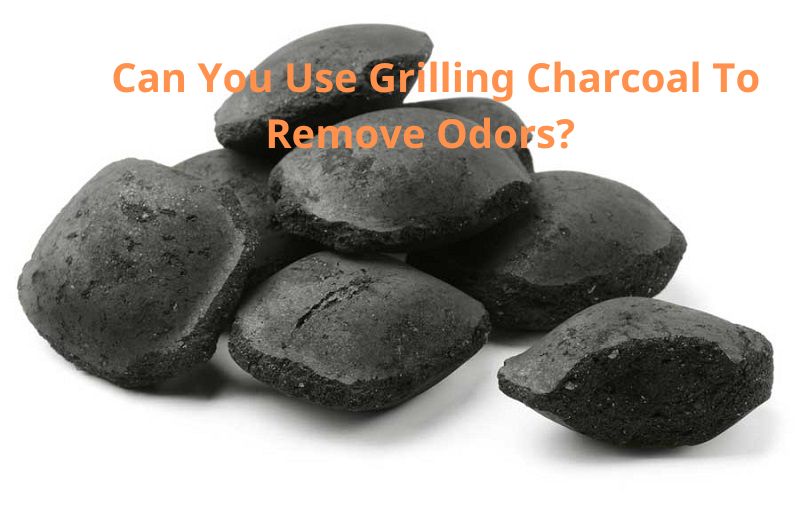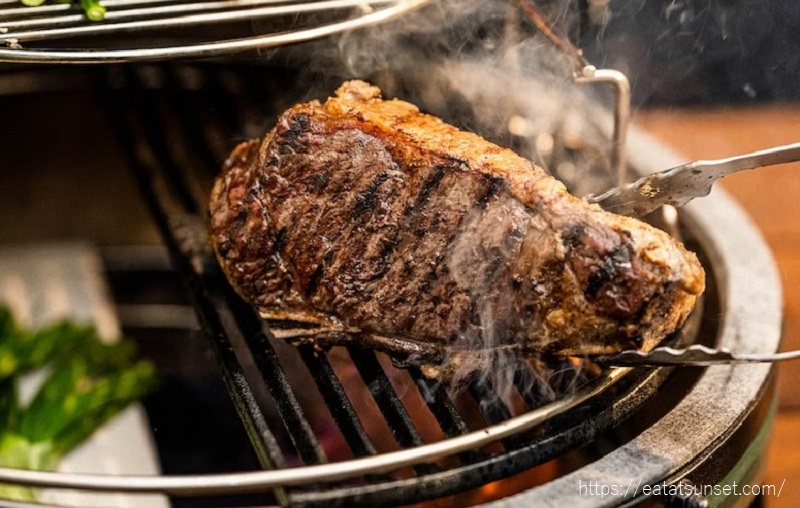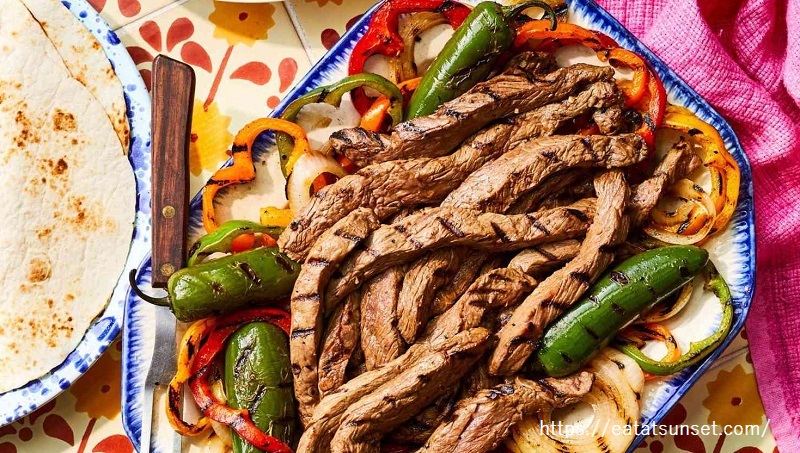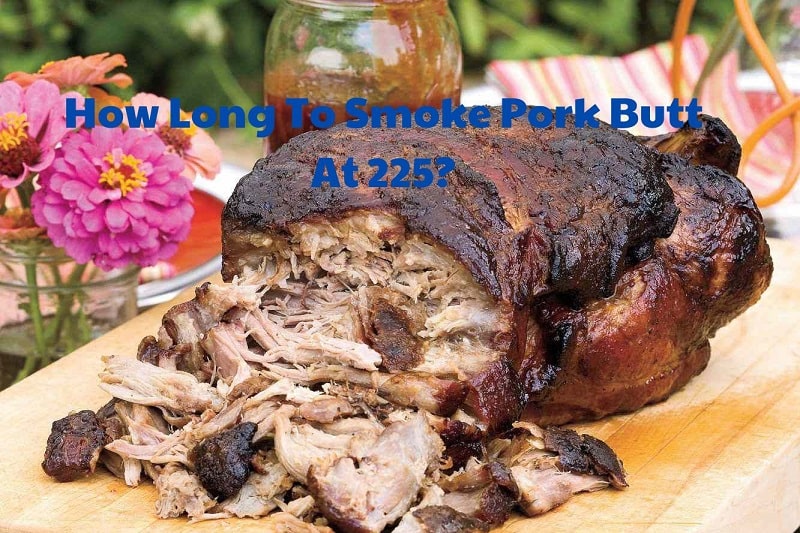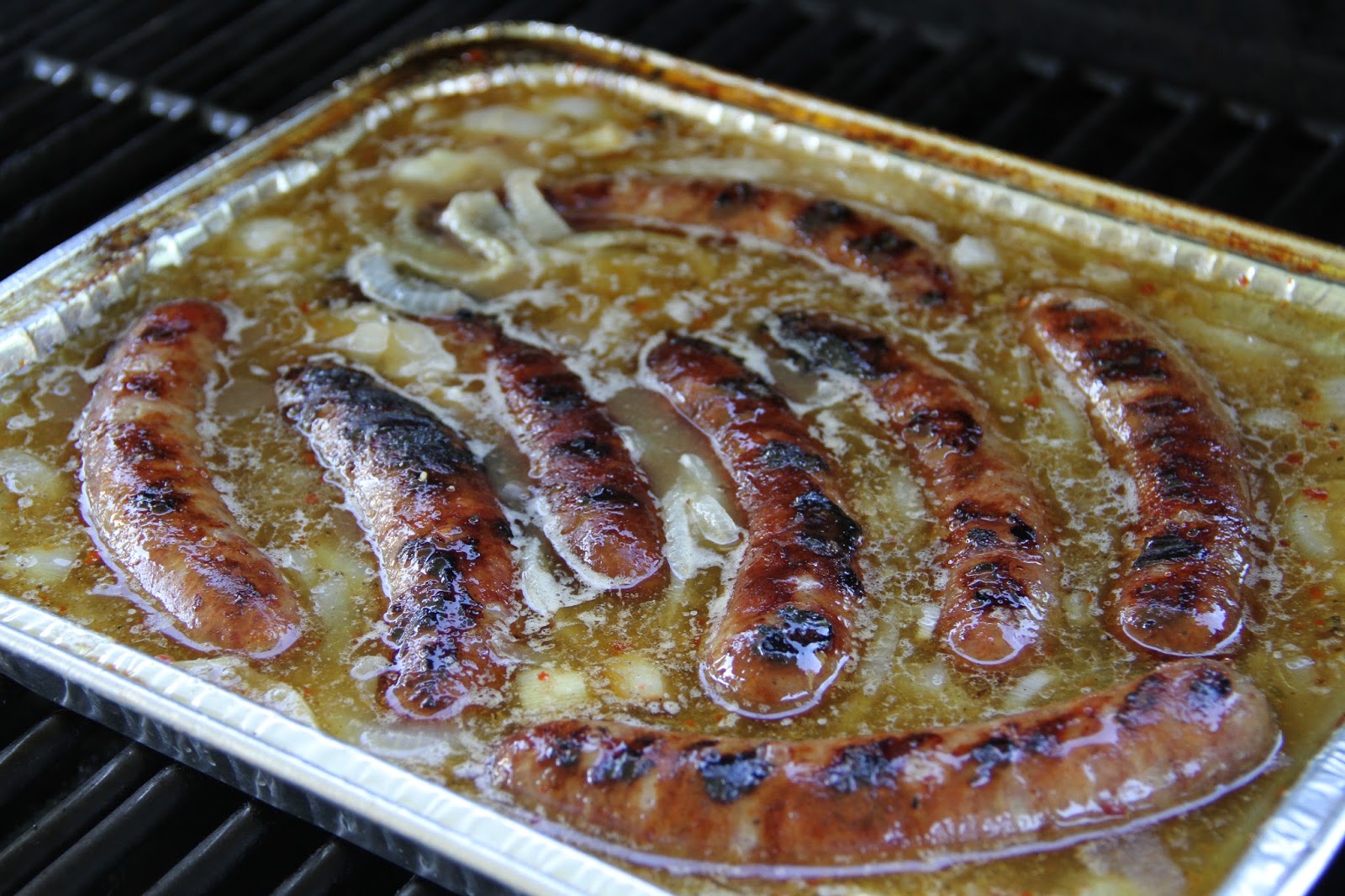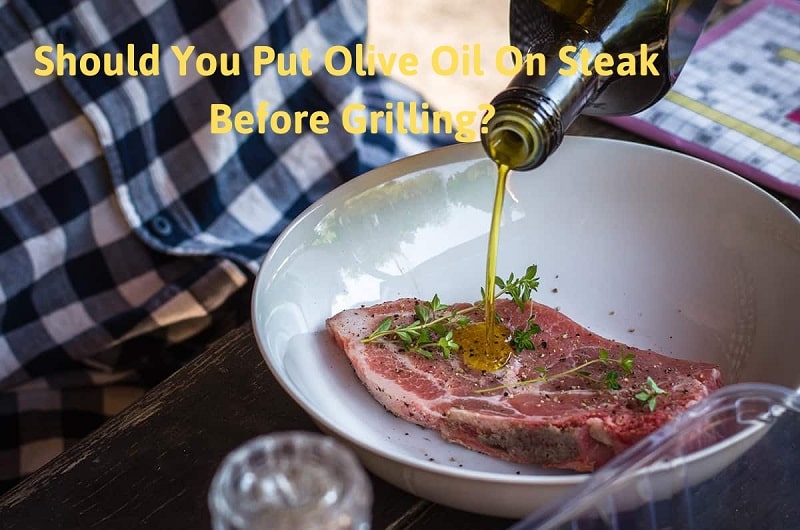There are many types of cooking vegetables such as boiling, streaming, roasting, grilling… Each of them provide unique flavor and technique to use to ensure that the nutrients remain in the vegetable. You may wonder “does grilling vegetables remove nutrients”, or maybe how to grill vegetables perfectly so that the nutrients still remain inside it. Sunset Bar and Grill will give you the perfect answer via this article.
Does grilling vegetables remove nutrients?
The answer is both yes and no. It’s no, because grilled vegetables actually can be considered as healthy food for you to eat. Grilling vegetables is good as you eat raw veggies because many nutrients still remain in the grilled vegetables. Still, keep in mind that if you make it into burned vegetables it will be very harmful to your health. Burned veggies can form carcinogens.
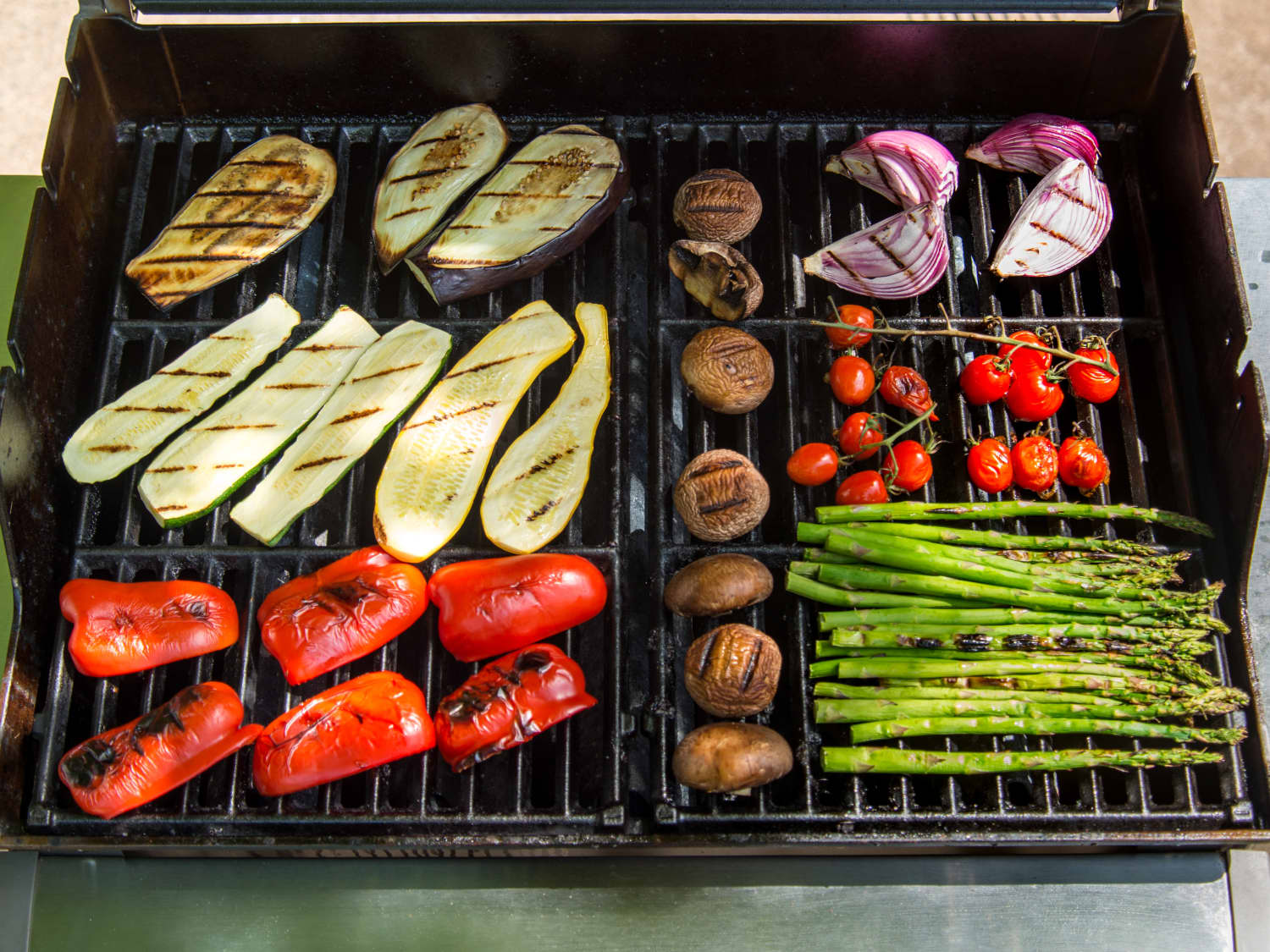
Grilling veggies
Cooking food does improve digestion and increases the absorption of many nutrients. Cooking also increases veggies’ flavor and makes it tastier. You should know that every cooking method can reduce several key nutrients. Below are the nutrients that often reduced during cooking:
- Water-soluble vitamins: Vitamin C and vitamin B are very easy to be dissolved in water, especially vitamin B1, B2, B3, B5, B6, B9, and B12.
- Fat-soluble vitamins: Vitamin A, D, E, and K are very easy to dissolve in fat, when frying and roasting veggies, you should pay attention to the amount of oil you use.
- Mineral: Easy to be dissolved are primarily potassium, magnesium, sodium, and calcium.
These vitamins and nutrients are easily dissolved. That’s why when cooking you need to be more careful. When you cook, there is no way to maintain all the vitamins and nutrients, some of them will be dissolved but not much. Take note that cooking veggies help release the nutrients from the cell walls of them better than eating it raw.
Mistakes You Should Avoid While Grilling Vegetables
There are many common mistakes when you grill vegetables. These mistakes lead to the fact that many vitamins and nutrients are dissolved while grilling. We will show you some mistakes that you should probably try to avoid while making grilled veggies.
- Oiling the veggies.
- Overcooking the vegetables.
- Not controlling the heat while grilling.
Oiling the veggies
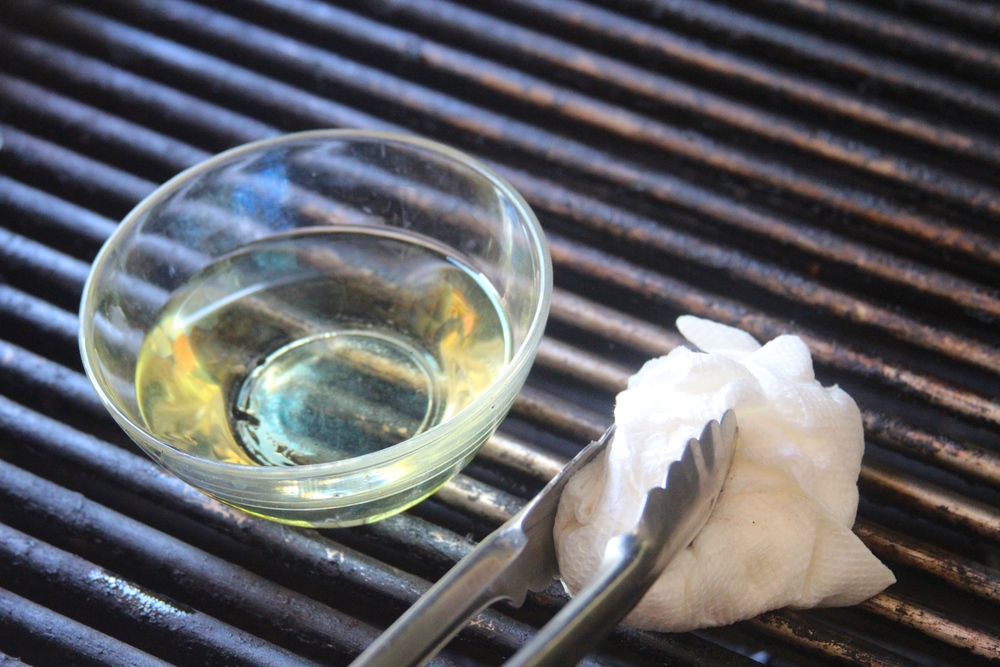
Applying oil on the grates
We must say that this is the most common and biggest mistake that you make when making grilled veggies. Like we mentioned above, many types of vitamins will be dissolved in fat, oils are fat. When you soaked your veggies in oil, you lost much nutritional value. You should never apply oil on top of your veggies.
Oil burns pretty quickly and makes your veggies taste awful. But there is a problem, if you do not apply oil on the veggies, it will stick to the grates. The solution for this matter is pretty easy, oiling your grates instead of your vegetables. Keep in mind that the amount of oil you use is enough for the veggies not to stick to the grates. Do not overcoat it.
Many of you will find it difficult to oil your grates, don’t worry, there are some steps for you to follow:
- Step 1: Make sure your grill is hot enough. A gas grill should be hot at 700 to 800 degrees. As for charcoal grill, please let the coals burn for five to ten minutes.
- Step 2: Scrape off any bits that remain from the grates.
- Step 3: Dip a brush to the oil and then start to apply it on the grates.
Please note that while doing this, you may see smoke appear and flare-ups happen. Don’t be alarmed, it is pretty normal.
Overcooking the vegetables
Overcooked foods are never healthy, especially when it comes to veggies. Overcooking veggies can lead to the fact that valuable vitamins and nutrients go down the drain. While grilling your veggies, pay attention to your veggies’ thickness, size, and shape because it will determine how long you need to grill your veggies.
It’s very easy to overcook your veggies because they might be too small for you to check on time. When you overcook it, the vitamins and nutrients will dissolve, also it may cause your vegetables to become soggy. Sometimes it leads to the fact that your veggies burn, it definitely is not good for your health.
Following this rule, slice your vegetables double the thickness that you think you should do while grilling it. Do not keep it on the grill for too long either. Pulling them out of the oven before they reach the desired doneness will help you avoid overcooking. If you can, it is better to slide your veggies as much as the same with its original shape.
Not controlling the heat while grilling
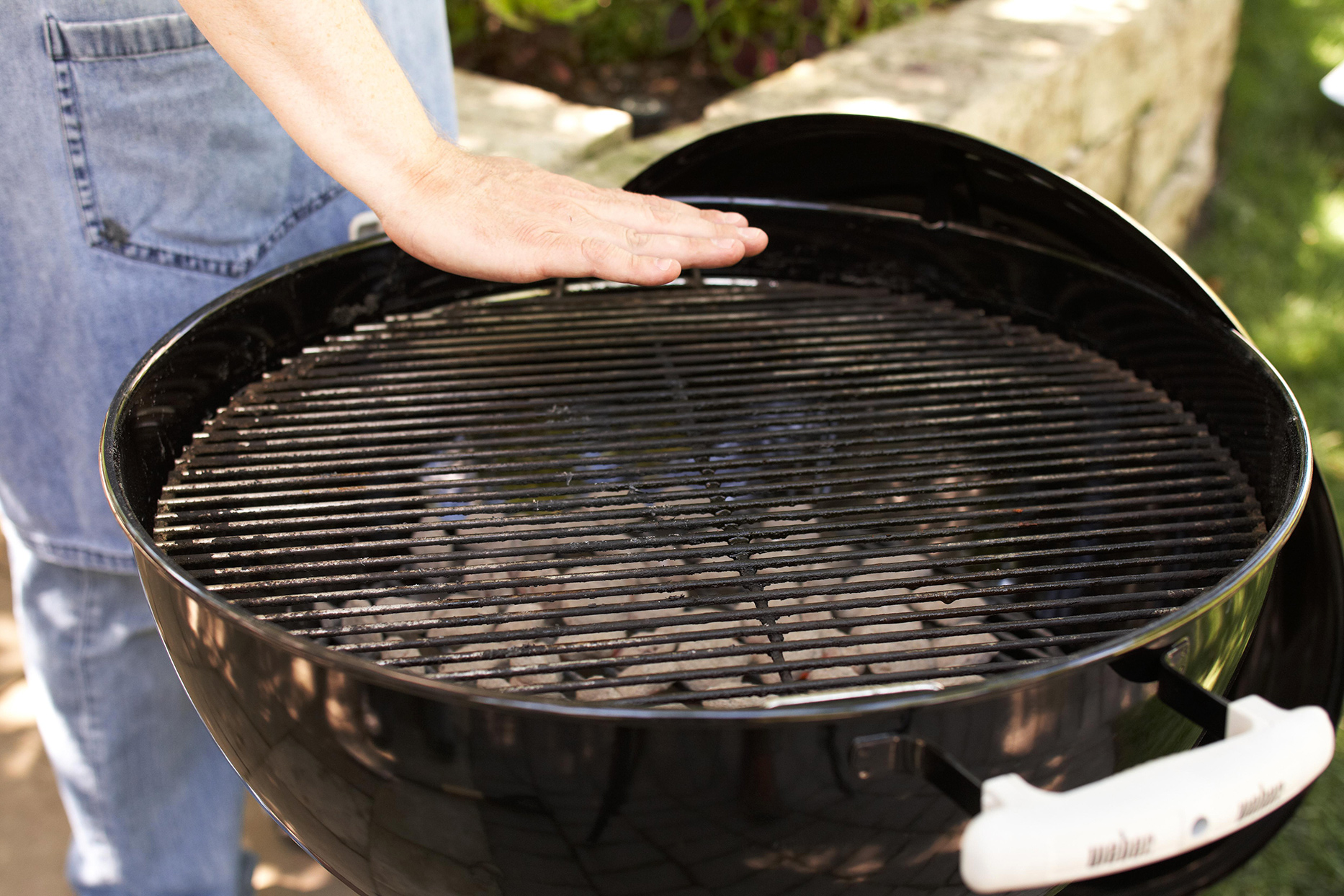
Checking the heat of the grill
This is, in fact, another common mistake. Many people think that they do not need to adjust the heat while grilling veggies. It is wrong. First, you grill it on high heat to get a pretty golden brown color, then immediately adjust the heat to medium or even lower heat to cook the inside of the veggies.
Doing that will help you to avoid overcooked or burned vegetables. Also, controlling your heat will help you create the most satisfied and tasty veggies ever.
If you are using a charcoal grill, simply transfer your veggies to a cooler spot far from the hottest coals and keep grilling it.
Frequently Asked Questions
1. How can I grill small veggies?
When it comes to small veggies like cherry tomatoes, zucchini rounds, and mushrooms, what you need is a skewer. Piercing them on a skewer or using a grill basket. This will prevent the small veggies from falling through the grates while grilling.
2. How long do I need to take to make sure my veggies are done?
The time you need for your veggies to be done depends on its thickness, shape, size and the temperature you use to grill. For example, a one-inch slice of onion will take about 8 to 10 minutes. Mushrooms and broccoli take the same amount of time as onions. Dense veggies take longer to grill, about 15 to 20 minutes.
3. Can I grill dense vegetables?
Yes, you can grill dense veggies like corn or potato. But it will take longer than other veggies. To reduce the time, you should try cooking them in packets. Prepare a 24-inch-long piece of foil and lightly coat it with nonstick cooking spray, place your dense veggies inside.
Fold the foil over and pinch the edges nicely. Grill the packet and be careful when you remove the vegetable because it might be very hot.
4. Can I eat grilled veggies with sauces?
Yes, of course. Veggies will definitely taste better if you eat them with any types of sauces you like. Remember not to pour the sauce on your veggies while grilling them. Prepare grilled veggies and enjoy them with your sauces.
5. Which vegetables are good for grilling?
The fact is you can enjoy any kind of grilled veggies if you like. But there are still some vegetables that are very good while grilling. They are bell peppers, onions, mushrooms, corn, tomatoes, broccoli, aubergines, and cauliflower.
Conclusion
Grilling is like any other type of cooking, it does remove nutrients and vitamins from veggies but not much. You can still enjoy eating grilled vegetables without caring so much about the loss of nutritional value if you are cooking it in the right way. We hope to provide you with the most useful information to the question “does grilling vegetables remove nutrients?”.
See more:
